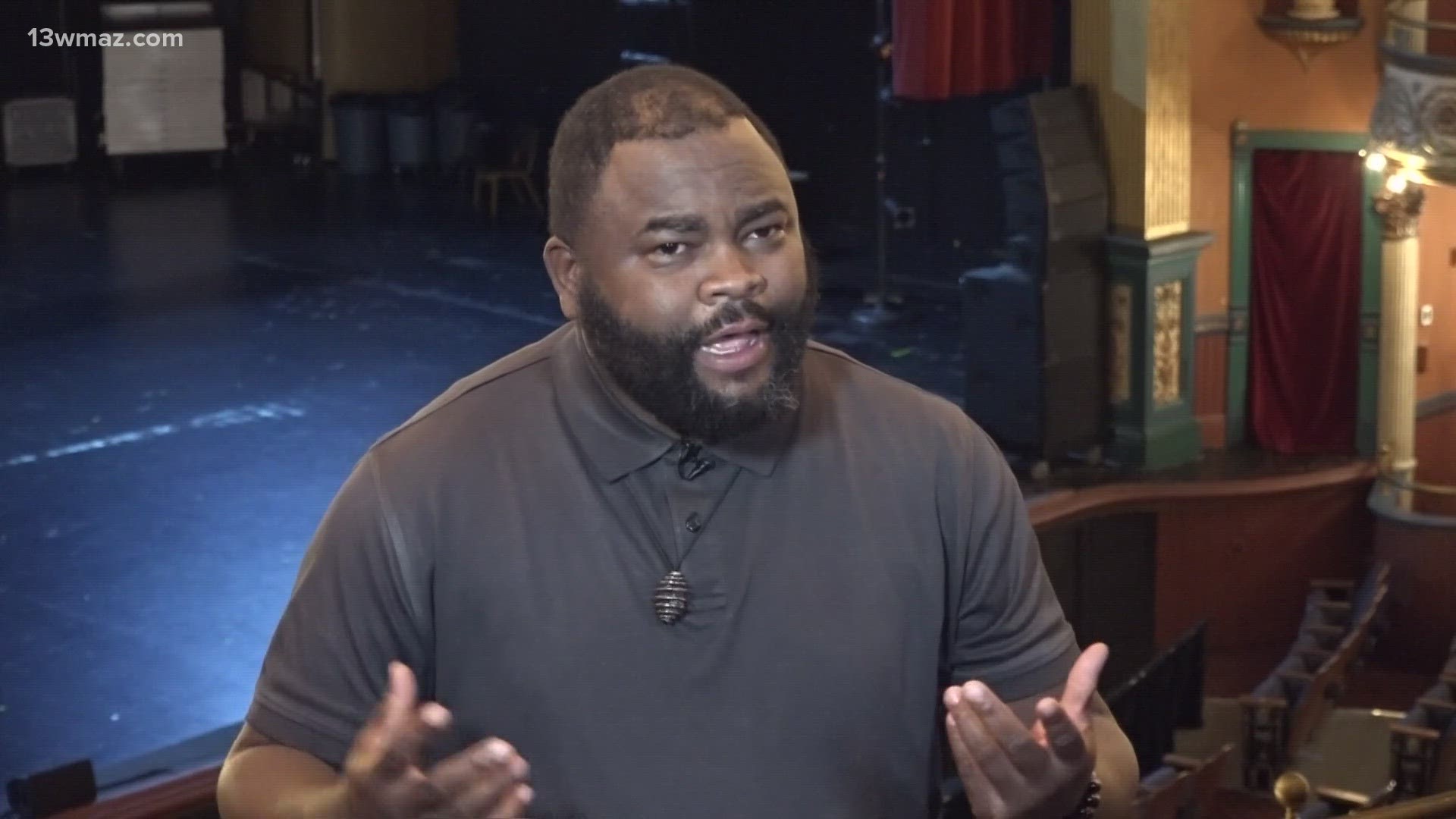MACON, Ga. — For years, The Grand Opera House has worked to diversify its performers.
Dsto Moore is one of those performers.
"It gave me a voice [and] I didn't know the voice I had," Moore said.
He is a black performing artist, and every visit to the Grand Opera House, he said, is special.
"Where I grew up and the people around me, we weren't never really into the arts," Moore explained.
He doesn't remember much about his first visit because he was in the second grade at the time.
The Grand Opera House wasn't exactly a place his family thought to stop by.
After his second visit decades later, Moore realized just how impactful the place really was to him.
"At first, it was a cultural change. I didn't understand the music at first," Moore said.
His desire to learn more is why he kept coming back.
"Being able to bring my kids on the journey with me to learn too. I'm learning as well, and they learn, so we learn together," Moore said.
After some time, he eventually made the courageous move to leave his comfort zone in the audience and come to the stage.
He wanted to tell his life story about growing up in Macon.
"We came up with an idea to tell the story of Pleasant Hill," Moore said. "It's an interactive play, showing people who live in Pleasant Hill at one point, and it's a way to bring the community together," Moore said.
One of his biggest successes with this show is helping save Dr. E.E. Green's home from demolition.
You might recall that Dr. Green was one of Macon's first black doctors.
Moore explains that it's important to share more black stories on the big stage.
"Sometimes, people's stories are not being told," Moore said. "A lot of those stories, when people die, the story fades away."
In a city where at least 55% of the population is black, Julia Morrison with the Grand said they want their productions to reflect that.
"We have been really intentional since the pandemic of saying, 'How do we welcome every person into these doors?'"
She added that one way to do that is to introduce more stories like Moore's.
Another way is to feature performances with cultural storytelling, humor and involvement from the audience.
"We really want our school students to see adults who are successful and confident and learn about their history and be proud of their history and their culture," Morrison explained.
She said this isn't just a Black History Month initiative but rather something the center is doing year-round.
In April, the Grand plans to feature a traveling show called "Step Afrika!"
She believes the show could have a lasting impact on the audience, especially children.
"It might just be that you see a step pattern at a tailgate at a football game, and you are able to connect that and link that to percussion that came from West African countries," Morrison said.
Unlike Moore, his two kids are getting a head start learning about their family and culture.
They watched from the audience and beside their 100-year-old grandfather.
"He couldn't believe it because of how he grew up; he was born in 1921, and how he grew up, it was impossible to see that," Moore described.
1884: It originally opened as the Academy of Music by a group of prominent Macon business men.
1904: The Grand Opera House got a big renovation into a more modernized facility. The facility had 2,400 seats and the stage was 80 feet wide and 60 feet deep making it the largest in the South and one of the largest in the country.
1935: It became Grand Theatre Cinema. While they still held live productions, they made a switch to showcase more shows on screen.
1967: The Macon Arts Council forms and saves the Grand. The council has since evolved into the Macon Arts Alliance.
1970: The Grand Opera House is restored and reopens with a performance from the Atlanta Symphony Orchestra. The Allman Brothers would later start a series of performances there and would culminate with live concert taping for a major network.
1995: Mercer took over managing the Grand under the direction of Mercer's President Kirby Godsey.
2016-2017: As part of a SPLOST, the Grand Opera House got a bit of a facelift as they expanded the lobby to include two full bars, new seating and historically-correct carpeting.

